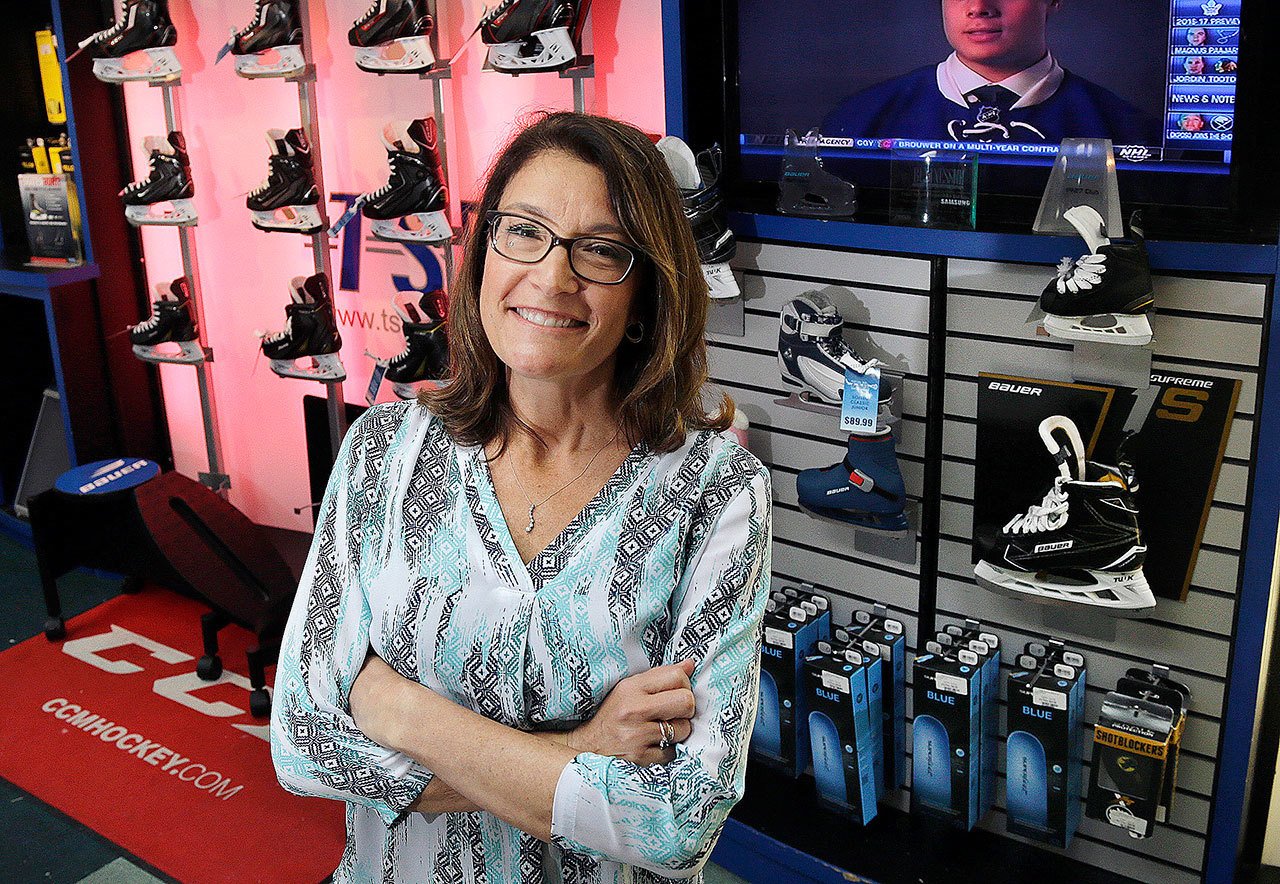By Joyce Rosenberg
Associated Press
NEW YORK — Small business owners are contending with a calendar problem that becomes a cash flow problem — they’re waiting longer to get paid.
Some customers, whether they’re consumers or other companies, are taking more time to pay than they did six months ago. That makes it hard for owners to manage cash flow and pay their own bills, and some are now asking for more money up front or requiring credit card payments.
At TSR Hockey in Salem, New Hampshire, the customers include the owners of ice rinks and local sports teams whose orders for uniforms and equipment can run into the tens of thousands of dollars. In the last year, some customers have taken two or three months to pay, compared to a month previously. The company is sympathetic — youth hockey teams, for example, are waiting for parents to pay, too, says business manager Susan Frazier.
“If they don’t get all their money, we don’t get all our money,” she says.
But TSR Hockey now asks teams to put 50 percent down when they place an order, with the balance due upon delivery. Some types of merchandise now must be ordered online with a credit card.
Companies’ slowdown in paying is reflected in a drop in PAYDEX, an index that tracks how much time small businesses take to pay their own creditors. PAYDEX fell 3 percent during the first half of this year from the last six months of 2015, according to Dun &Bradstreet Credibility Corp., which compiles the index. That decline in the index — which means companies are taking longer to settle up — followed a 1 percent increase at the end of last year when compared with the first half of 2015.
The economy likely is one reason, as consumers and companies prioritize which bills will be paid first.
Valerie Allen has seen it at her eponymous public relations company in Sherman Oaks, California.
“I’ve had clients who used to pay on time like clockwork all of a sudden being more than 30 or 45 days late,” Allen says. They don’t give a reason, but Allen has been aware of the ebb and flow of their business. Slow payers in turn create problems for Allen: “I have payroll to make every two weeks, rent and other expenses.”
To ease the crunch, she’s now taking credit card and electronic payments, and that helps some clients pay faster. Allen does have to pay a fee for accepting credit card payments, but getting paid faster helps her cash flow.
Slower payments may also be part of some companies’ business strategy, a lingering effect of the Great Recession, says Mary Driscoll, a researcher with Houston-based metrics company APQC. Many publicly held companies began paying more slowly to build up their cash reserves and balance sheets, she says.
“They got in the habit of extending payment times as a matter of policy,” Driscoll says.
In a study released in October by APQC, two-thirds of the businesses surveyed — most of them small businesses — reported getting slower payments in the previous three years. A 2014 study by researchers at Georgia Institute of Technology’s Scheller College of Business showed that companies of all sizes are taking longer to pay — 46 days in 2014 versus 35 in 2009, even though the economy was much healthier in 2014.
Some businesses may also use partial payments as leverage to get a better deal, says Robert Pellegrini, an attorney with PK Boston, a law firm based in Massachusetts. A small business that’s waiting for its money may not want to retaliate.
“Many small business owners are afraid to collect for fear of upsetting a long-term client, but continuing the work without being paid sets a dangerous precedent that will ensure you will never be paid on time,” Pellegrini says.
Instituting or requiring the use of credit cards has helped some like Allen mitigate payment problems. But other small businesses that are often paid by check have to keep after customers.
Logan McNeil, who co-owns a fencing company in Fredericksburg, Virginia, has found in the past year she must make more phone calls to non-paying customers. Some ask her to accept less than the balance due. Or when they send a check, they shave a little off what they owe, such as paying $5,000 instead of $5,200.
Most of Fredericksburg Fences’ customers are homeowners. The company requires 50 percent down when a contract is signed and the rest when the fence is installed. When customers don’t pay on time, the company must look toward the next new contract to keep its cash flow strong.
“This is the worst it’s been,” McNeil says.
A company that changes billing methods may also find its customers may be slow to adapt. When Gerald Aguilar began emailing invoices for his Jupiter, Florida, company, Pest Control Pro, many homeowners overlooked them. Aguilar sends weekly reminders, then a text that usually gets them to pay. But Aguilar often has about $1,200 in unpaid balances, a significant amount for a small business.
“I have high vehicle gas bills, chemicals, supplies, gear and so forth,” he says.
His solution sometimes is to go the old-fashioned route: sending an invoice by U.S. mail.
Talk to us
> Give us your news tips.
> Send us a letter to the editor.
> More Herald contact information.

























